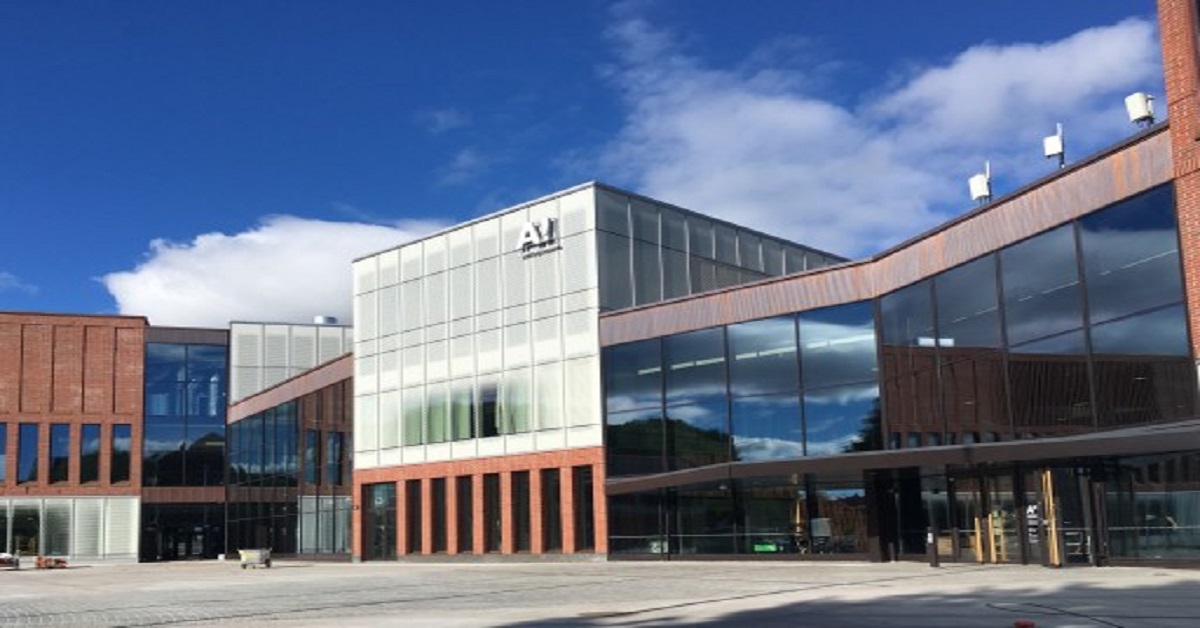Position as Postdoctoral Research Fellow in data stream processing and privacy protection available at the Department of Informatics.
The fellowship period is 3 years and devoted to carrying out a project entitled (Parrot: Privacy Engineering for Real-Time Analytics in Human-Centred Internet of Things). Depending on qualification and interest, the Department might fund a fourth year for a compulsory work load of 25% (over four years) that may consist of teaching, supervision duties, and research assistance.
No one can be appointed for more than one Postdoctoral Research Fellowship at the University of Oslo. Starting date as soon as possible.
Kunstverk av Bård Breivik
Job description / Project description / Development plan:
This PhD Fellowship is part of the Parrot project funded by the research Council of Norway. The Parrot project is an international collaboration between the University of Oslo (Norway) and the Technical University of Darmstadt (Germany). The application domain of Parrot is in human-centred IoT (including participatory sensing and mHealth), which are especially prone to privacy issues. The goal of Parrot is to develop privacy engineering solutions to the benefit of all stakeholders in the value chain on these systems, i.e., data subjects, application developers, service providers and service users. This means to (1) provide data subjects with the requested level of privacy protection, (2) relieve application developers from the burden of implementing privacy protection, and (3) take care that privacy protection does not hamper the data quality and assures by this the usefulness of the service for (real-time decision making of) service users.
Scientific and technical challenges that are addressed in this research project include:
Expressing and matching of privacy concerns of end-users and data quality requirements for data analytic.
Characterizing privacy protecting mechanisms in terms of protection level and impact onto data quality.
(Semi-)automatic rewriting of queries for Complex Event Processing (CEP) systems and automatic placement of operator graphs in distributed (mobile) CEP systems under security and privacy concerns.
Design and implementation of a fully decentralized and trustworthy overlay for distributed CEP systems.
Experimental and empirical evaluation of solutions developed in the project.
Postdoctoral fellows who are appointed for a period of four years are expected to acquire basic pedagogical competency in the course of their fellowship period within the duty component of 25 %.
The main purpose of a postdoctoral fellowship is to provide the candidates with enhanced skills to pursue a scientific top position within or beyond academia. To promote a strategic career path, all postdoctoral research fellows are required to submit a professional development plan no later than one month after commencement of the postdoctoral period.
Qualification requirements
The Faculty of Mathematics and Natural Sciences has a strategic ambition is to be among Europe’s leading communities for research, education and innovation. Candidates for these fellowships will be selected in accordance with this, and expected to be in the upper segment of their class with respect to academic credentials.
Applicants must hold a degree equivalent to a Norwegian doctoral degree in Computer Science (or equivalent). Doctoral dissertation must be submitted for evaluation by the closing date. Only applicants with an approved doctoral thesis and public defence are eligible for appointment.
Fluent oral and written communication skills in English.
Candidates with skills in a Scandinavian language can be preferred.
It is required that the successful candidate documents experience in at least one of the following domains:
Practical privacy protection
Data stream processing systems
Query processing
Distributed mobile systems and overlay networks
Furthermore, it is required that the candidate can demonstrate the ability to implement proof-of-concept systems and use them for experimental evaluation.
Personal skills:
Desire to perform high-quality research
Eagerness to learn
Interest and ability to work in an international research team
We offer
Salary NOK 534 400 – 615 800 per year depending on qualifications in position as Postdoctoral Research Fellowship (position code 1352)
Attractive welfare benefits and a generous pension agreement
Professionally stimulating working environment
Vibrant international academic environment
Postdoctoral development programmes
Oslo’s family-friendly surroundings with their rich opportunities for culture and outdoor activities
How to apply
The application must include:
Cover letter (statement of motivation, summarizing scientific work and research interest)
CV (summarizing education, positions, pedagogical experience, administrative experience and other qualifying activity)
Copies of educational certificates, academic transcript of records and letters of recommendation
A complete list of publications and up to 5 academic works that the applicant wishes to be considered by the evaluation committee
Names and contact details of 2-3 references (name, relation to candidate, e-mail and telephone number)
The application with attachments must be delivered in our electronic recruiting system. Foreign applicants are advised to attach an explanation of their University's grading system. Please note that all documents should be in English (or a Scandinavian language).
IIn assessing the applications, special emphasis will be placed on the documented academic qualifications and the quality of the project as well as the candidates’ motivation and personal suitability. Interviews with the best qualified candidates will be arranged.
It is expected that the successful candidate will be able to complete the project in the course of the period of employment.
Formal regulations
Please see the guidelines and regulations for appointments to Postdoctoral fellowships at the University of Oslo.
No one can be appointed for more than one Postdoctoral Fellow period at the University of Oslo.
According to the Norwegian Freedom of Information Act (Offentleglova) information about the applicant may be included in the public applicant list, also in cases where the applicant has requested non-disclosure.
The University of Oslo has an agreement for all employees, aiming to secure rights to research results etc.
The University of Oslo aims to achieve a balanced gender composition in the workforce and to recruit people with ethnic minority backgrounds.
Contact information
Professor Thomas Plagemann, phone: +47 228 52743, e-mail: plageman@ifi.uio.no
or Professor Vera Goebel, phone: +47 228 52402, e-mail: goebel@ifi.uio.no.
For technical questions regarding the recruitment system, please contact HR Adviser Torunn Standal Guttormsen, e-mail: t.s.guttormsen@mn.uio.no



